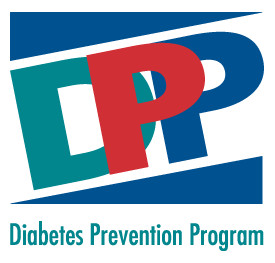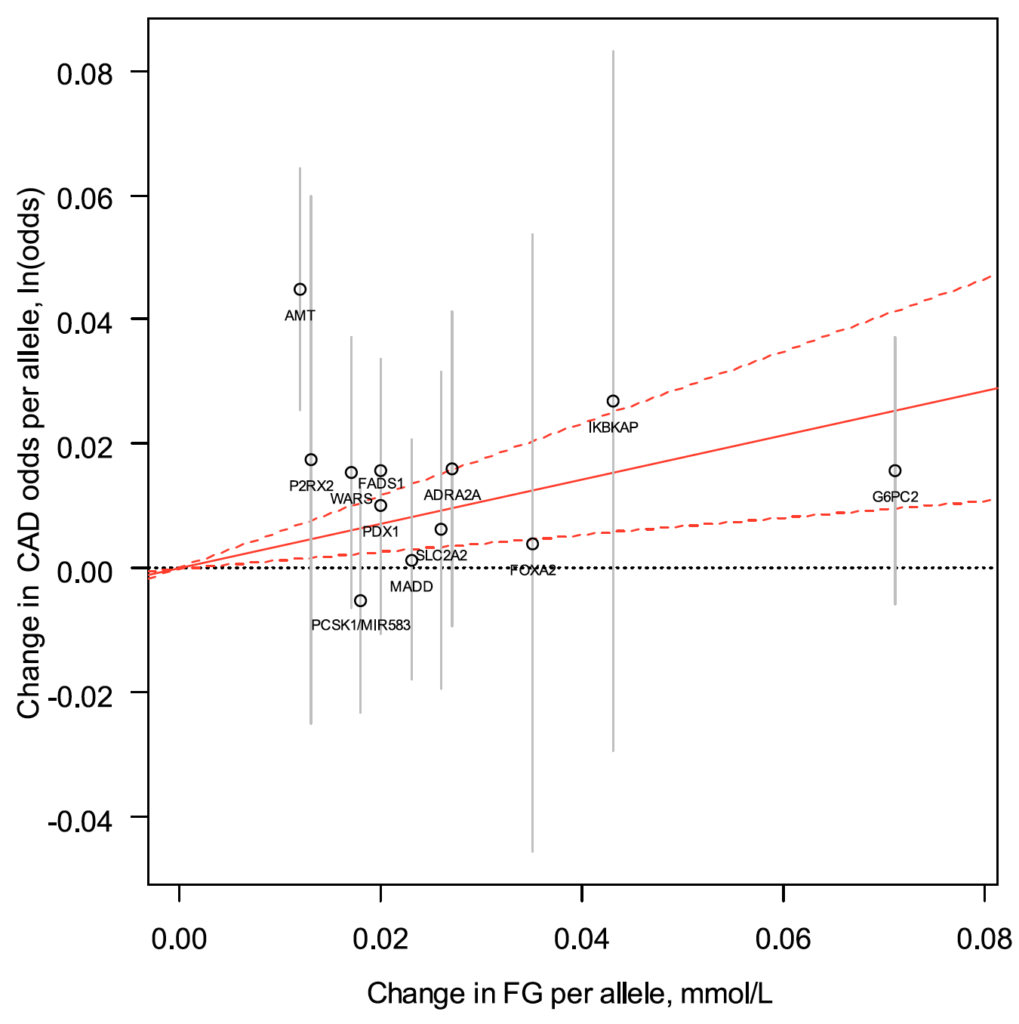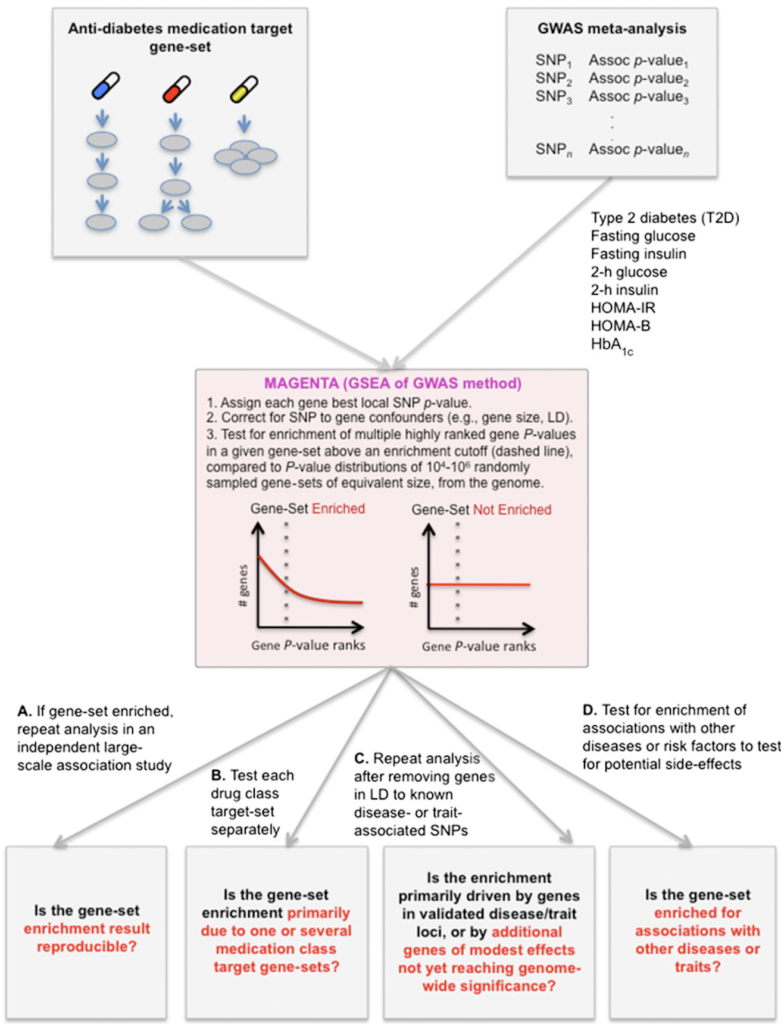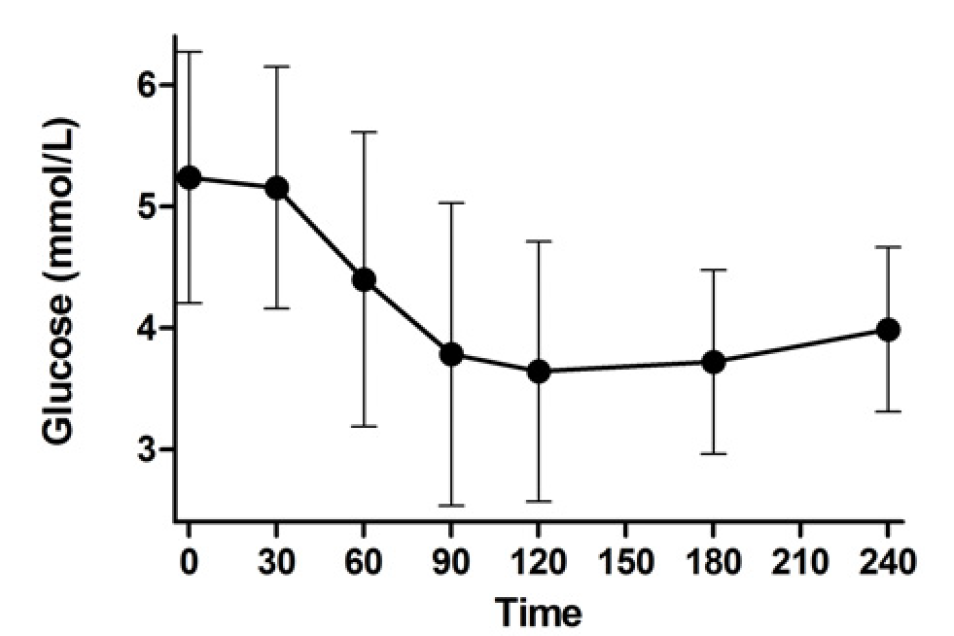
The Diabetes Prevention Program randomized participants at high risk of T2D (based on impaired glucose tolerance, an elevated fasting glucose and overweight) to placebo, metformin, or intensive lifestyle modification. Both the metformin and lifestyle interventions proved effective in preventing or delaying the onset of diabetes [DPP NEJM paper], and these effects were sustained [DPP Lancet …
Read More…
The SIGMA mixed-meal tolerance test study challenges non-diabetic participants with a high-calorie, high-carbohydrate meal reflective of current US dietary patterns, before and after a short course of metformin. Their glycemic, hormonal and metabolomic responses to the dietary and pharmacological perturbations can be studied according to genotype at selected loci. …
Read More…

The Patients with Hyperglycemia Assessed for Response to Medications by Genetics study is a retrospective clinical cohort of several thousand participants with T2D culled from electronic medical record databases where prescription information and glycemic response is available. Volunteers provide a DNA sample and pharmacogenetic assessments of drug response in a real world setting can be …
Read More…

The Study to Understand the Genetics of the Acute Response to Metformin and Glipizide in Humans is a pharmacogenetic resource in which 1,000 volunteers who were naïve to T2D medications received a glipizide challenge and a short course of metformin, after which they underwent an oral glucose tolerance test (OGTT). Their glycemic, hormonal and metabolomic …
Read More…

Ultimately, we wish for discovery to improve human health. Genomic inquiry may impact disease categorization, patient stratification, clinical prediction, drug discovery or therapeutic targeting. Genomic discovery that is agnostic to pre-existing knowledge has uncovered dozens of loci that influence glycemic dysregulation. Physiological investigation has begun to define disease subtypes, clarifying heterogeneity and suggesting molecular pathways …
Read More…

OBJECTIVE: This study tested the hypothesis that genetically raised hyperglycemia increases coronary artery disease (CAD) risk separately from the risk conferred by type 2 diabetes as a whole. RESEARCH DESIGN AND METHODS: We conducted a Mendelian randomization (MR) analysis using summary-level statistics from the largest published meta-analyses of genome-wide association studies (GWAS) for fasting glucose …
Read More…

Genome-wide association studies (GWAS) have uncovered >65 common variants associated with type 2 diabetes (T2D); however, their relevance for drug development is not yet clear. Of note, the first two T2D-associated loci (PPARG and KCNJ11/ABCC8) encode known targets of antidiabetes medications. We therefore tested whether other genes/pathways targeted by antidiabetes drugs are associated with T2D. …
Read More…

OBJECTIVE: Genome-wide association studies have uncovered a large number of genetic variants associated with type 2 diabetes or related phenotypes. In many cases the causal gene or polymorphism has not been identified, and its impact on response to anti-hyperglycemic medications is unknown. The Study to Understand the Genetics of the Acute Response to Metformin and …
Read More…
AIMS/HYPOTHESIS: Common genetic variants have been associated with type 2 diabetes. We hypothesised that a subset of these variants may have different effects on the transition from normal fasting glucose (NFG) to impaired fasting glucose (IFG) than on that from IFG to diabetes. METHODS: We identified 16 type 2 diabetes risk variants from the Illumina …
Read More…
OBJECTIVE: The C allele at the rs11212617 polymorphism in the ataxia-telangiectasia-mutated (ATM) gene has been associated with greater clinical response to metformin in people with type 2 diabetes. We tested whether this variant modified the effect of metformin in the Diabetes Prevention Program (DPP), in which metformin reduced diabetes incidence by 31% in volunteers with …
Read More…









